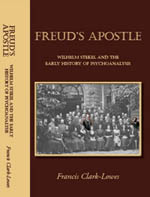Once it had been established that the battle of Waterloo was won on the playing fields of Eton every self-respecting school had to have a large expanse of flat grassland on which to do the necessary imperial training. Around the middle of the last century Shrewsbury School left Charles Darwin sitting on his plinth outside what is now the public library and acquired a green (playing) field site centred on the abandoned workhouse standing high above the River Severn. (The chimes of the clock mounted on this building still have an enormous resonance for me on my rare return visits.) The school now spread itself around the periphery of the playing fields with a chapel, a number of boarding houses, a headmaster’s residence and so on. The first home I remember was a first-floor flat in an ertswhile red-brick boarding house which stood opposite the imposing Moss Gates entrance to the school. At the age of five I started to attend Stepping Stones School, a pre-prep school just around the corner run by a woman called Miss Luthner. I would have been shocked to have learnt, as I now suspect, that she was a German who had lost her umlaut.
Many of the fathers of my fellow pupils were teachers at the school. In all there were around fifty masters and apart from the art teacher (Royal College) and the gym intstructors (both ex-army and one the father of a capital murderer who was hung while I was at the school), they were all Oxbridge men. In the morning my father would go to chapel wearing his Oxford gown, and other teachers even besported mortar boards. Thus from an early age I was imbued with the spirit of these two revered universities and found it a bitter pill to swallow that I was not to find myself among the chosen. Years later when I attended a residential union seminar at Caius College, Cambridge (where my grandfather was an organ scholar and two of my brothers were students), I felt as if I had come home!
There were, of course, no female teachers at Shrewsbury. God know what would have happened to any remotely attractive female who had attempted to storm this male bastion. House matrons were bred specially for the job to remove any titillating characteristics. Of course nature being what it is, housemasters sometimes had daughters, not all of whom were totally lacking in charm. Indeed I was at an early age enamoured of two of them. One day on the way home from school Diana, daughter of the incumbent mayor, Colonel West, closed the garden gate of her father’s boarding house against my brother and me, and we tried to push it open. This clear attempt at gang rape caused a terrible hullabaloo culminating in a very uncomfortable interview with my father in which he told us, in effect, that those pearly gates above would forever be closed to us if we did not mend our ways.
At that time the headman, as he was called, was Sir John, later Lord, Wolfenden, author of the famous homosexuality law reform report (a subject which I might as well tell you is not totally unrelated to the excision of a paragraph before this one). When I was four, he threw a fancy-dress party for the children of the staff. The decision about what I should wear was determined by my hairdresser phobia. By far the most terrifying place that I had ever visited had been a salon which boasted a row of oval-looking objects clearly designed to administer lethal injections to the head. I had consequently point blank refused to have my hair cut, as a portrait of me painted by my mother at this time clearly shows. But fearing that matters could not be delayed indefinitely, I wielded a pair of scissors myself with predictable results, after which I could only be a cowboy wearing a scout hat firmly pulled down to my ears.
Whatever its pecularities and defects, Shrewsbury School was a community and has left me with a particular hankering after a shared existence with others. Was this part of what brought me to live here?

